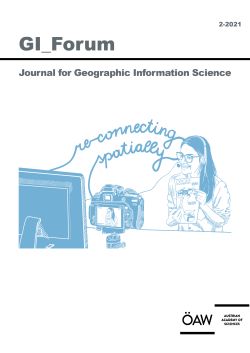Vincenza Ferrara,
Anders Wästfelt
S. 108 - 121
doi:
10.1553/giscience2021_02_s108
Verlag der Österreichischen Akademie der Wissenschaften
doi:
10.1553/giscience2021_02_s108
Abstract:
The biocultural heritage of historical landscapes is an expression of intertwined ecological and socio-cultural dynamics at different temporal and spatial scales. Such a legacy is what confers high nature value on agricultural systems worldwide. Today there is an urgent need to develop approaches that may allow a more integrated study of biocultural heritage in order to better direct future endeavours for the sustainable management on such agricultural systems. Here, a methodological approach to unpack space-time complexity in the land-use dynamics of historic and current-day agrosystems is presented, based on the use of contextual and spatial-relational segmentation techniques within the research framework of historical ecology. With reference to work done in a case study area in Sicily, the authors first extract geographic contextual configurations and develop a spatial-relational ontology for their semantic interpretation, before using these spatial objects as temporal proxies to disentangle the spatial and temporal dynamics of land use. The result is a cross-disciplinary approach in which perspectives from historical ecology can be used to achieve a deeper understanding of evidence extracted from remotely sensed images. At the same time, advanced spatial analysis techniques may provide a further interpretative tool for scientific inquiry into biocultural heritage.
historical ecology, contextual analysis, relational ontology, olive
Published Online:
2021/12/28 12:12:17
Object Identifier:
0xc1aa5576 0x003d25ec
Rights:https://creativecommons.org/licenses/by-nd/4.0/
GI_Forum publishes high quality original research across the transdisciplinary field of Geographic Information Science (GIScience). The journal provides a platform for dialogue among GI-Scientists and educators, technologists and critical thinkers in an ongoing effort to advance the field and ultimately contribute to the creation of an informed GISociety. Submissions concentrate on innovation in education, science, methodology and technologies in the spatial domain and their role towards a more just, ethical and sustainable science and society. GI_Forum implements the policy of open access publication after a double-blind peer review process through a highly international team of seasoned scientists for quality assurance. Special emphasis is put on actively supporting young scientists through formative reviews of their submissions. Only English language contributions are published.
Starting 2016, GI_Forum publishes two issues a Year.
Joumal Information is available at: GI-Forum
GI_Forum is listed on the Directory of Open Access Journals (DOAJ)
In the 2021-2 issue, the following three thematic areas are addressed: Advances in GIScience, Geo-Social Analytics, and Learning and Education with Geomedia. The contributions, for example, evaluate modes of generalization in animated choropleth maps; investigate different Convolutional Neural Networks (CNNs) architectures for monitoring wildlife in complex natural habitats; introduce an Augmented Reality learning environment for Geoinformatics education; investigate pedestrian infrastructure in a city considering the COVID-19 restrictions; or propose a customised workflow for place extraction from social media text and subsequent geocoding; or address various mobility issues for sustainable cities.




 Home
Home Print
Print
 References
References
 Share
Share
